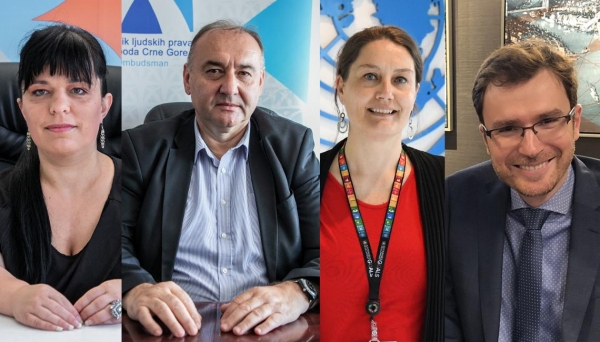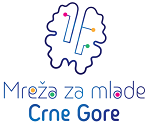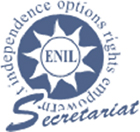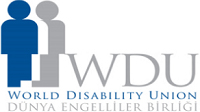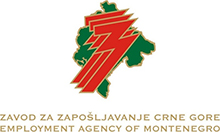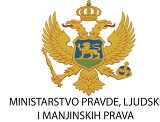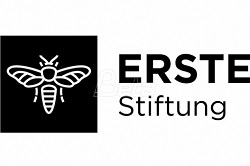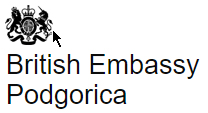Change the laws urgently and change awareness and approach regarding rights of PWDs
Podgorica, PR press service – Efficiency, sustainability and adequacy of the measures enabling full enjoyment of right to independence and inclusion in the community are obligations of the state and its institutions, therefore many laws should be changed urgently, and serious change of the awareness and approach is also necessary.
Those are the messages from the first panel Guarantees of the right to liberty for PWDs of the Online conference organized by the Association of Youth with Disabilities of Montenegro (AYDM) on the occasion of the European Independent Living Day, 5th May and Europe Day, 9th May.
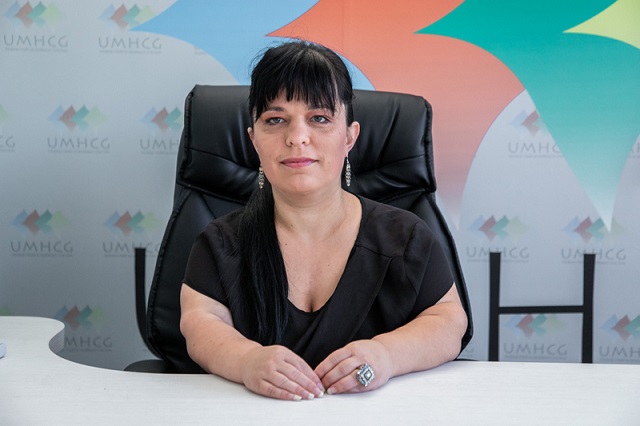
Executive Director of AYDM Marina Vujačić, stated that Montenegrin legislation, contrary to all international standards and UN Convention on the Rights of PWDs allows, enables, but also prescribes possibility for limitation or deprivation of liberty of persons with disabilities, solely because of their impairment, or presumed impairment.
„ Such policies and regulations, as well as Montenegrin practice, are conditioned by the negative legal inheritance stemming from the old, traditional models of approach to disability, first of all, medical and functional models, which see the problem in a person – seeing them as ill, and unable to do or perform basic life functions, and of course for independent living and life in community“, Vujačić highlighted.
She said that it is not known enough about the respect for dignity and integrity, and even the freedom of PWDs, how many young people with disabilities are staying in nursing homes, how many persons with disabilities are in accommodation facilities because the state has not found or sought another solution, or how many are in hospitals and other institutions, although they do not need the medical treatment, and that „ the application of certain treatments has negative consequences on their mental and physical condition“.
Vujačić pointed out that so called Law on the Protection and Realisation of the Rights of Mentally Ill does not make a precise distinction between mental illness, i.e. psychosocial disability and intellectual disability, therefore it identifies the two categories, prescribing the same relationship and treatment for them.
„Although amended in 2013, it still has discriminatory provisions relating to restriction of enjoyment or total deprivation of liberty and involuntary placement, as well as medical experiments for the purpose of “treatment”, Vujačić explained.
As a category that also has frequent freedom limitations, she mentioned persons who are deprived of legal capacity.
„They, when substitute decision making is in place, instead of supported decision making, are not subjects and right holders, such as the right to live in the community, and most often they are placed in institutions, but on the other hand, it is important to emphasize that they cannot make any contractual relationship and therefore cannot even qualify for services of support for living in the community“, Vujačić highlighted.
According to her, when it comes to independent living, Montenegro is nowhere near modern understanding, and therefore not even close to human rights standards, and numerous laws in the fields of health, social protection and living in the community, family and marital relations, and other material and procedural ones, would urgently need to undergo significant changes.
„Only in this way, at least before the law, we can talk about the equality of all the people, and then we have to apply in practice serious changes in consciousness and approach“, Vujačić said.
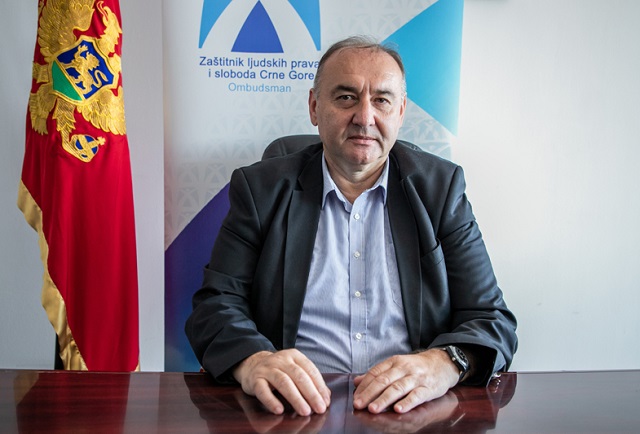
Ombudsman of Montenegro, Siniša Bjeković, thinks that independence as an essential feature of the functioning of a human being in a community is a natural need arising from their integrity, their freedom and their dignity, regardless of any personal attribute, including disability.
„Independence does not mean that a person is left to himself or herself. The essence of the concept of human rights points to the fact that their catalog, as well as the way of their realization, is a matter of social agreement embodied in the highest legal acts of states at national level, that is, international treaties at that level of implementation of human rights“, Bjeković said.
According to him, the state and its institutions have the responsibility to provide efficiency, sustainability and adequacy of measures that make it easier for persons with disabilities to fully enjoy the right to independence and to be fully integrated into the community.
„I must point out one of the fundamental shortcomings that is often observed in our practice and rests on the assumption of the so-called medical model of approach to disability. It absolutely deviates from the standard, given the very definition of disability under the Convention. And that second part of the concept of disability, which is constantly missing, concerns various obstacles that prevent the full and effective participation of persons with disabilities in society on an equal basis with others, and above all in the opportunities to participate in social flows from the position of an independent person“, Bjeković explained.
The civil sector advocating for the rights of persons with disabilities points to a number of systemic problems in the implementation of measures to support the independent living of persons with disabilities, he said.
„This section raised the open question of the quality of services within existing institutional solutions, as well as the gaps in the understanding of individual institutes regarding supported living in the community. This is especially true of personal assistants as a form of support that should allow for facilitated involvement in life in the community. In addition to the essential shortcomings in the implementation of this service, there are also shortcomings in the standardization of conditions based on international standards and the importance of personal assistance within this framework“, Bjeković said.
When it comes to specific forms of disability, he added that in one part, reform should be accelerated: in changing the practice of so-called substitute decision-making in relation to supported decision-making as a satisfactory standard.
„ This is especially important because in certain areas, such as political participation, family and marital relations, even in the area of social welfare, etc., the absence of the expressed will of a person with a mental disability is completely rooted in a matrix of behavior at all levels“, Bjeković pointed out.
The problem of accessibility, according to him, continues to exist as a systemic problem for two reasons.
„Just a glance at certain urban areas will show why inclusion is an illusion, and independence is impossible in terms of architectural, infrastructural, technological and other barriers. In addition, these are key principles of international law, and it should be recalled that such an obligation is also provided for in domestic legal order, most often in anti-discrimination regulations“, Bjeković said.
He highlighted that the principle of independent living implies a free and effective access to all public authorities and, in this connection, the use of all legal aid mechanisms, including resources adapted to the needs of persons with disabilities, so that they can effectively use procedural mechanisms to exercise their rights.
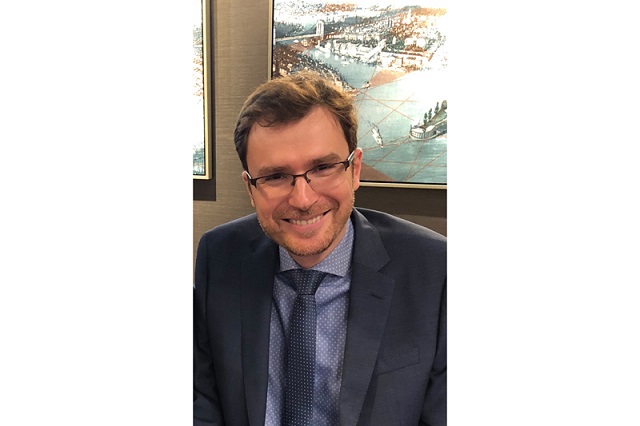
Executive Director of the International Disability Alliance, Vladimir Ćuk, pointed out that persons with disabilities around the world are still not enjoying liberty, independent living, they do not have the right to education, to employment.
„It is simply the fact we have to accept. I think we should stop celebrating because we disappeared a bit in that celebration and that we have lost the base which was there when we were creating and created the Convention. I call for a better work of DPOs around the world. I am sure in Montenegro we have a good staff, many organizations employing quality staff and who have among their activists those who could keep their state responsible“, Ćuk said.
He recommended to start a new campaign and with a new strength go to new wins.
„We are witnessing the crisis caused by coronavirus which in one second reminded us that we have not done the good job. In one day we saw that persons with disabilities are forgotten, that they were not provided medical help when needed, that they even were placed on the list not to be provided medical help, if respirators are missing“, Ćuk highlighted.
From many countries in the world it is heard that independent living is under threat.
„Assistant supporting persons with disabilities in many countries are deprived of right to movement. Then, they do not have the right to be tested, and if you open the door to welcome assistant helping you, cannot know whether he/she has a virus or not. Many information were not processed in the way to be accessible for all. So, for example, deaf people had no access to information about the curfew etc.”, Ćuk said.
People are dying every day because, as he said, the Convention is not implemented appropriately.
„We had 12 years and the world haven’t done it enough. Current crisis can teach us that we should work more and require more. It is finally the time to do much more and I believe that, step by step, we will succeed”, Ćuk thinks.
However, in the last few years, big wins have been achieved, which brought big changes to persons with disabilities around the world.
„A lot has been done and we have the basis on which we should influence more our governments to do more. We have the basis, a lot of documents, decisions, so let’s work on it and let’s start responsible policy and responsible implementation of the Convention” Ćuk said.
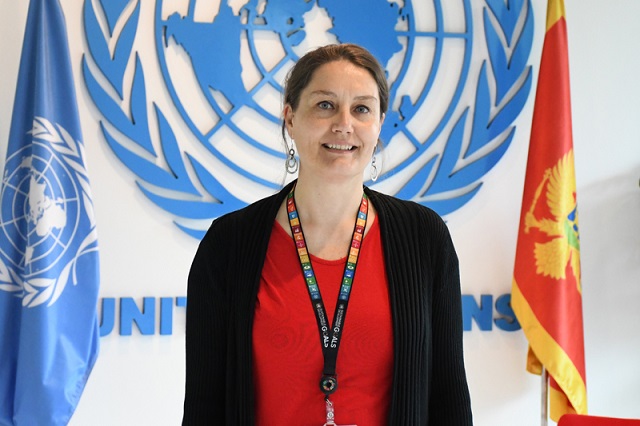
Human rights Adviser in the UN, Anjet Lanting, said that, when it comes to data, it says that 50% of all COVID-19 related deaths may have been in care homes, but it is not known how many persons had a disability, but it is known that many persons with disabilities live in care homes.
„Some persons reckon on support they did not managed due to different restrictions regarding movement and physical distance. Unfortunately, we heard about the case of teenager in China who had cerebral palsy, who was left alone at home and who died because his father and brother were in quarantine“, Lanting said.
She also pointed out that persons with disabilities often do not have access to information about the coronavirus.
Pandemic, as she said, shown that it is necessary to fully reorganize support and services focusing on persons with disabilities.
„Now there is possibility to do it all in better way. And in order to achieve all we have to develop everything in close cooperation with persons with disabilities themselves“, Lanting explained.
UN, as she said, is one of the organizations which recognized the need for better inclusion of PWDs in all aspects of its work.
„Exercising all rights and following obligations will help all countries to further progress towards achievement of sustainable development goals and also help Montenegro to progress during EU accession negotiations“, Lanting said.
PWDs before, as she said, were pointing out that support is necessary for their empowerment.
„Some persons will need personal assistance and UN Committee on the Rights of PWDs highlighted that such support should be controlled by the users, that is should be based on individualized criteria. PWDs should themselves engage, educate and monitor work of their assistants, to be in the center of decision making processes regarding assistance and their will and need should be respected“, Lanting said.
She highlighted that there are proofs that systems of independent living and supported living, when set adequately, can be more cost-benefit and make better results than living in institutions.
Within the UN CRPD, as she said, there is a specific article which obliges states parties to provide help and support to each other so „Montenegro is not alone in this”.
„UN in Montenegro are still ready to continue providing support to persons with disabilities, state and all other partners in order to fully realize rights of all” Lanting highlighted.
The event was organized within the project “Communicating EU accession and EU assistance in Montenegro III”, financed by the EU, and implemented by Secretariat General of the Government of Montenegro, as a measure of the Action plan for 2020 of the Public Information Strategy on Montenegro’s Accession to the European Union.



More news
- THE AYDM CONDUCTED A RESEARCH ON THE ASSESSMENT OF COMPETENCIES AND EXISTING KNOWLEDGE OF PERSONS WITH PHYSICAL DISABILITIES IN THE FIELD OF DIGITAL MARKETING IN MONTENEGRO
- Portal Disability info i aktuelnosti
- AYDM ARE IMPLEMENTATING THE PROJECT DIGITAL MARKETING CAPACITY BUILDING - EMPOWERING PERSONS WITH PHYSICAL DISABILITIES FOR REMOTE WORK
- European Day on Independent Living marked in Montenegro: Right on Independent Living as Right to Freedom and Choice
- IN THIS ELECTION PROCESS, THE CONDITIONS FOR PEOPLE WITH DISABILITIES ARE NOT ADEQUATE TO THE CORRESPONDING EXTENT











